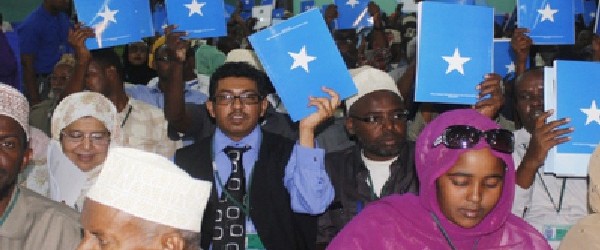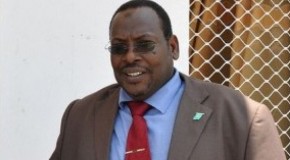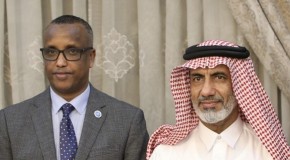Many people with a vested interest in a peaceful future for Somalia agree that strengthening and reforming the national security forces is essential to keeping the momentum going.
The African Union is pushing for the UN Security Council to lift its arms embargo on Somalia,
while at the same time keeping it in force against non-state actors. The AU is also asking for an expansion of the UN support package to Somalia, as well as for help in financing the full deployment of military personnel for AMISOM, to reach its agreed level of 12,000 troops.
UN Secretary-General Ban Ki-moon has agreed with President Mahmud to start peacebuilding activities.
Mr. Ban wants the UN to establish a “heavy footprint” in the country, meaning he wants to have all relevant UN agencies,
funds and programmes move to Somalia by January 2013 (most have been operating from neighbouring Kenya).
Restoring basic services such as water, education and health is also crucial to the new government’s success, Maxamed Ibrahim, a graduate student of international development at the University of Vermont in the US, told Africa Renewal.
He is from Bardera, an agricultural city connected to the port of Kismayo. He left Somalia in 1995 and has not been back since. He remains a bit skeptical about the country’s future.
Clan warfare, corruption, security challenges and the aftermath of the famine are problems carried over from the previous administration. “No one talks about reforming the army,
paying taxes…. As for AMISOM, military victory is almost all they talk about. But once they capture a city,
The AU troops are already stretched too thin and the government does not talk about services. People will turn to Al-Shabaab for security and services if they don’t get them from the government.”
The government’s immediate challenge now is to establish local and district administrations, justice and the rule of law. Then it will be in a better position to provide for local populations.
For now, Mr. Ibrahim believes that the Somali people are “tired of groups like Al-Shabaab.” As long as the Somali people remain in control of any future stabilization effort, he concludes, they will be “tolerant” and will give the new government time to resolve longstanding problems.
News



















Comments are closed.